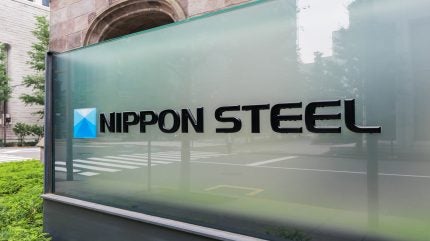
US President Donald Trump has stated that the US will maintain control over US Steel as it enters a partnership with Nippon Steel, according to a Reuters report.
This announcement comes after Nippon Steel revealed plans to invest $14bn into US Steel’s operations, which includes up to $4bn for a new steel mill.

Discover B2B Marketing That Performs
Combine business intelligence and editorial excellence to reach engaged professionals across 36 leading media platforms.
On Sunday, Trump elaborated on the agreement, asserting: “It will be controlled by the United States, otherwise I wouldn’t make the deal.”
He highlighted that the deal had been influenced by discussions with relevant lawmakers, the report said.
However, it remains uncertain whether the term “partnership” pertains to Nippon Steel’s ongoing pursuit of a complete acquisition of US Steel, according to a separate Reuters report.
The merger is set to create the world’s third-largest steel producer by volume behind China’s Baowu Steel Group and ArcelorMittal, as per the World Steel Association.

US Tariffs are shifting - will you react or anticipate?
Don’t let policy changes catch you off guard. Stay proactive with real-time data and expert analysis.
By GlobalDataIt is expected to generate 70,000 jobs, according to Trump’s statement on Friday.
The White House has not responded to inquiries regarding the announcement.
Investors have shown optimism, anticipating that the terms of the deal will align with those established in 2023. They believe that US Steel will eventually transition from being publicly traded, with shareholders receiving a cash payout for their shares.
The deal has garnered significant attention on Wall Street, especially due to concerns that foreign ownership could lead to job losses in Pennsylvania, where US Steel is headquartered.
In January, US Steel and Nippon Steel filed a lawsuit against the Biden administration, alleging an unlawful block of their proposed $14.9bn merger due to a biased national security review.
They argued that the merger would have revitalised steel communities in the US, secured jobs and reinforced national security, suggesting that the blockage was politically motivated and failed to assess the deal’s merits.





